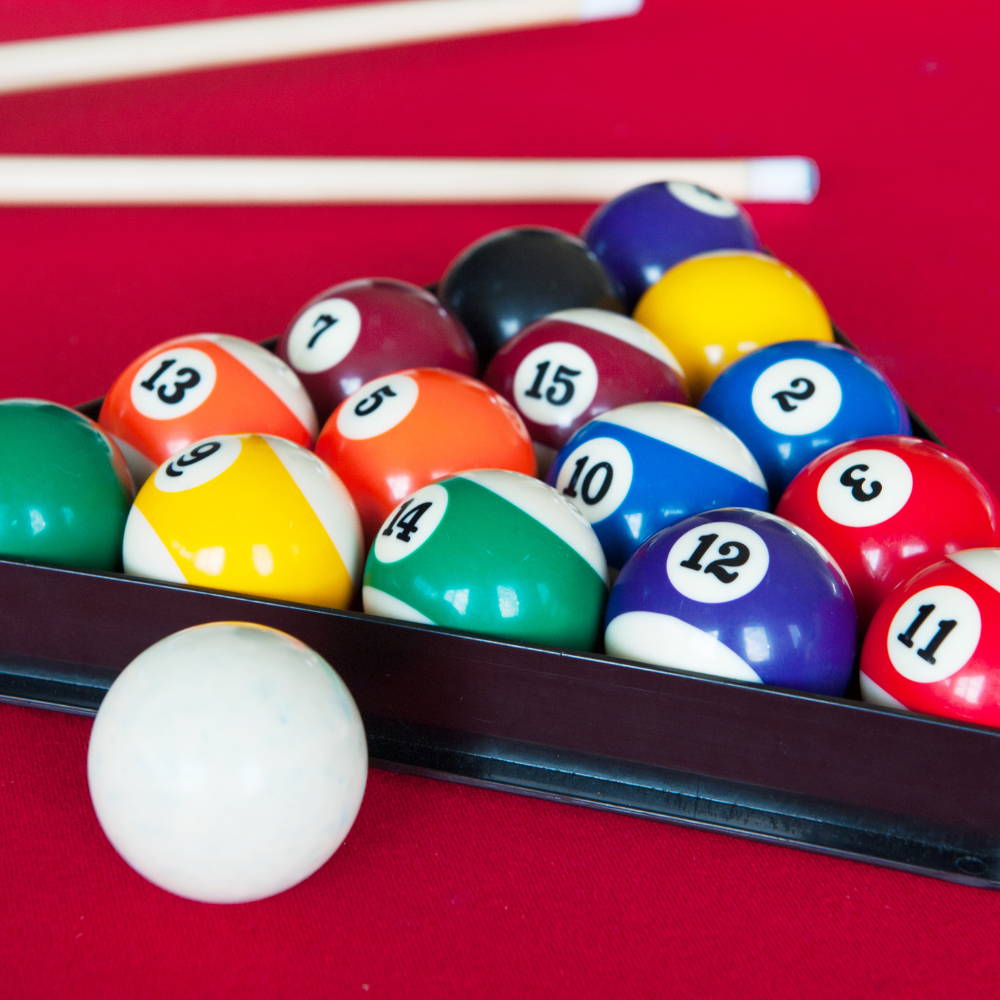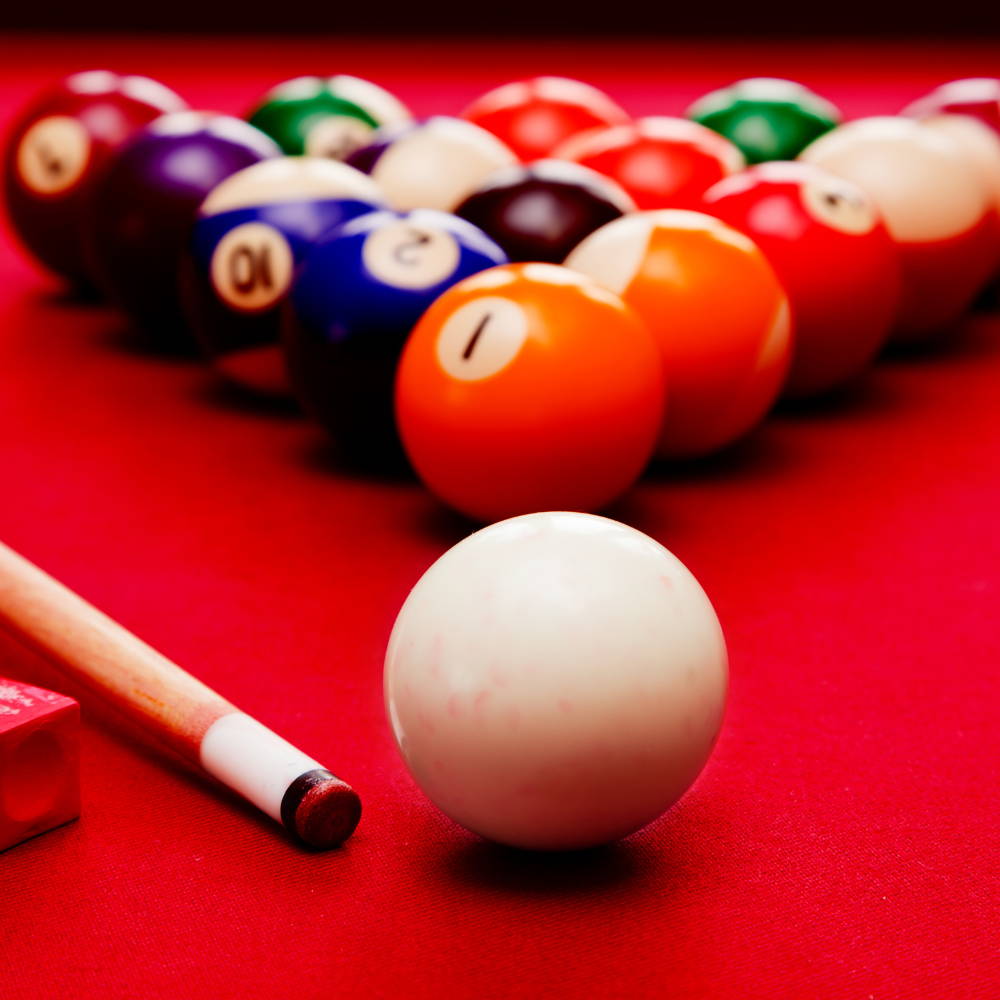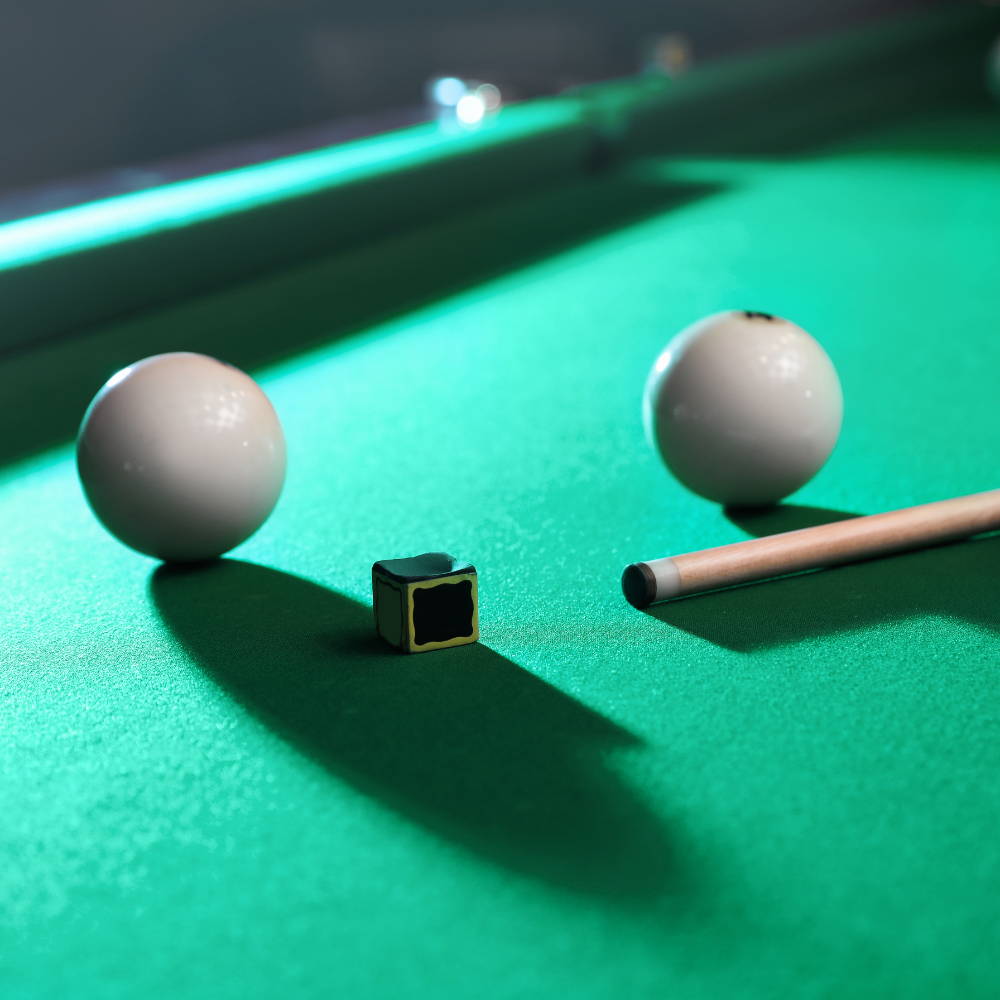Why You Need to Chalk Your Pool Cue
Billiards is a game of skill, precision, and strategy. Just like how a painter needs their brushes, a player needs their cue. However, to maintain optimum performance and achieve accurate shots, chalking the pool cue becomes paramount. Here's a comprehensive look at why chalking your pool cue is not just a ritual but a necessity.

1. The Importance of Grip
The tip of a pool cue, typically made of leather, comes in contact with the smooth, polished surface of a billiard ball. As you can imagine, this interaction doesn't naturally provide a lot of grips. Chalking the cue tip increases the coefficient of friction between the tip and the ball, ensuring that the cue doesn't simply slide off the ball's surface (a phenomenon termed "miscue"). A miscue can result in inaccurate shots or even damage to the pool table.
2. Spin and Control
Advanced pool players often impart spin to the cue ball, which helps in positioning it for the next shot. The spin is achieved by hitting the ball off its center. A well-chalked cue tip allows players to hit the cue ball on the side without sliding off, giving them better control over the ball's direction and spin. Without chalk, side spins or "English" becomes almost impossible to execute consistently.
3. Protection of the Cue Tip
Chalking isn’t just about improving your game; it’s also about cue maintenance. Regular chalking protects the cue tip from wear and tear. Without chalk, the tip is more likely to miscue, which can lead to unexpected impacts on the side or bottom of the cue ball. Over time, these miscues can degrade the quality of the tip, leading to more frequent replacements.
4. Consistency in Play
Ask any seasoned player, and they'll attest to the importance of consistency in billiards. A significant part of this consistency comes from knowing how your tools will react in any given situation. Chalking your cue ensures that its interaction with the ball remains consistent throughout the game, preventing unpredictable behavior that can throw off your strategy.
5. Psychological Boost
While this might sound less technical, the act of chalking one's cue often serves as a psychological reset for many players. In between shots, as players assess the table and decide on their next move, chalking becomes a momentary pause, a ritual that helps them focus and compose themselves. In high-pressure situations, this brief interlude can be invaluable.
6. The Tradition of the Game
Billiards, like many sports, comes with its set of rituals and traditions. Chalking the cue is as much a part of the game as the break or the final black ball shot. Engaging in this tradition helps players feel connected to the rich history of the game and its many legends.

7. Improves Shot Accuracy
A proper grip between the cue tip and the ball directly translates to more accurate shots. A well-chalked cue ensures that the energy from the stroke is transferred efficiently to the cue ball. Without adequate friction, the ball might not travel in the intended direction or with the desired speed.
8. Prolongs Cue Tip Lifespan
Continuous play without chalking can lead to “burn spots” or hardening on the cue tip. These spots are usually the result of excessive friction and heat caused by miscues. A properly chalked cue tip helps distribute the impact more evenly, reducing the chances of such spots forming.
9. Reduces Financial Impact
For those who invest in high-quality cues, frequent tip replacements due to inadequate chalking can become a costly affair. Maintaining the cue tip with regular chalking can save players a considerable amount in the long run.
Understanding Chalk Composition
Pool chalk isn't made of the same material you'd find in classroom chalkboards. It's specifically designed to provide grip. Most pool chalks contain a mixture of silica and corundum, combined with a binding agent to hold it together. This combination ensures optimal friction without being overly abrasive.
Chalking Frequency
The frequency of chalking varies among players. Some prefer to chalk before every shot, ensuring maximum consistency, while others chalk every few shots. The key is to ensure the cue tip doesn't appear shiny, a sign that re-chalking is needed.
Alternative Products
With advancements in billiard technology, there are now alternatives to traditional chalk. For instance, chalk-less tips and liquid chalk products promise the same grip without the mess of chalk dust. While these can be effective, they haven't replaced traditional chalk in popularity or general acceptance.
Cultural Significance
In many cultures, billiards isn't just a game; it's an art. The act of chalking, the stance before a shot, and even the post-shot analysis have become cultural rituals passed down generations. In such contexts, chalking isn't just about the grip; it's a revered part of the game's legacy.
Choosing the Right Chalk
Given the importance of chalking, it's also essential to choose the right chalk for your cue. Not all chalks are created equal. The best chalks provide a good grip, don't create excessive dust, and adhere to the cue tip for an extended period.
While most pool halls provide communal chalk, serious players often have personal preferences and carry their own. Blue is the most common color, but chalks come in various shades, from green and red to gold. It’s not just about color; the consistency and quality differ across brands.
Chalking Technique Matters
Just as crucial as the act of chalking is doing it right. An effective chalking technique covers the entire tip without caking it excessively. A light, even coating is all that’s required for optimal performance. Over-chalking doesn’t necessarily provide better grip and can lead to excess chalk dust on the table, which can interfere with play.

In Conclusion
Chalking your pool cue is an indispensable aspect of the game of billiards. It ensures grip, control, protection, and consistent play. Like the strings to a violin or the tires to a race car, the chalk on a cue tip makes a significant difference in performance. So, the next time you approach the table for a game, remember the importance of that little cube of chalk and make it an integral part of your play routine.
Are you looking for a Pool Table? check out our pool tables range Pool Tables





